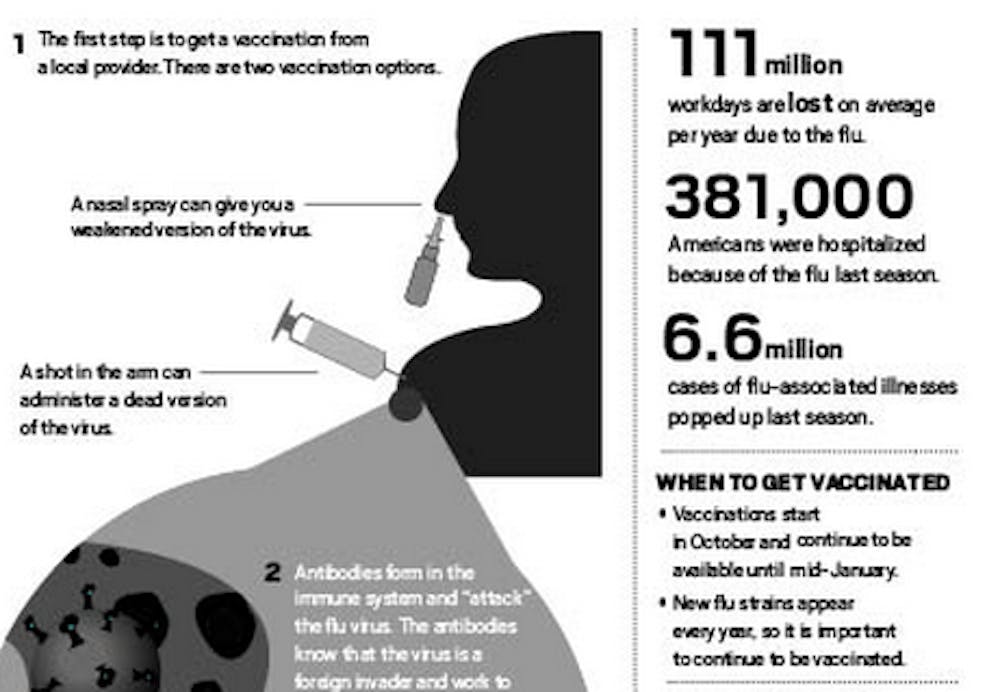• This year’s flu is the same as the 2009 strain that killed 40 Hoosiers.
• Three people have died in Indiana from the flu this season.
• Misconception leads to aversion to vaccines.
As the flu season reaches its height, three Hoosiers have died due to the illness.
The H1N1 virus, also called type A influenza and “swine flu,” killed the three people. The first death came in December and two others died afterward, said Ken Severson, media relations coordinator for the Indiana State Department of Health. All three deaths occurred north of Indianapolis.
Flu vaccines are no longer available at the Amelia T. Wood Health Center, so students are being deferred to places like Walgreens and CVS. Last week, the Health Center experienced students coming in with flu symptoms and many tested positive for the H1N1 virus.
In 2009, the H1N1 pandemic killed 40 Hoosiers, although officials don’t expect this year’s outbreak to affect the same number of people, The Associated Press reported.
Deidre Dorman, the director of the Health Center, said the center has a plan to work with the Office of Housing and Residence Life and other offices on campus to better clean up the campus and accommodate students if another outbreak like 2009 were to happen.
The Centers for Disease Control and Prevention recommends an annual flu shot to reduce the likelihood of contracting the flu.
Although the H1N1 virus is this year’s main flu strain, there are several in any given year.
Those who received the Health Center’s vaccine got one that protected from the H1N1 virus. Walgreens offers vaccines that protect from four types and CVS offers shots that protect from three.
Both pharmacies currently have vaccines available and do not require an appointment. The cost for vaccinations is $31.99 without insurance.
Lance Villaluz, a pharmacist at a Muncie Walgreens, said his store had given out more than 1,000 vaccines this flu season.
There is often a misconception that the vaccine can give a person the flu. Dorman said this is not the case. Although reactions to the vaccine may feel like flu symptoms, these symptoms persist for a shorter time.
She said the most common reaction to the vaccine include redness and tenderness at the site of injection, but around 30 percent of adults that get the vaccine suffer from headaches, muscle aches and fatigue. This mirroring of symptoms may lead some to inaccurately believe the vaccine has given them the flu.
Kristen Walters, a senior education major, said she has gotten sick from the vaccine she gets yearly for the past three years.
“For me, the benefits outweigh the risk,” Walters said.
However, she said her father stopped taking the vaccine because he always seemed to get sick after getting it.
If a student believes they have the flu, they should seek medical attention within 48 hours of the onset of symptoms. Dorman said they can get Tamiflu, an antiviral medication, to help reduce the severity of the symptoms and decrease its duration. In addition, she said a person needs to drink fluids, rest and perhaps start a multivitamin.






